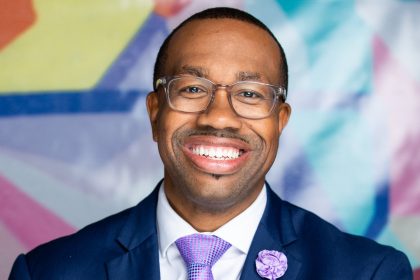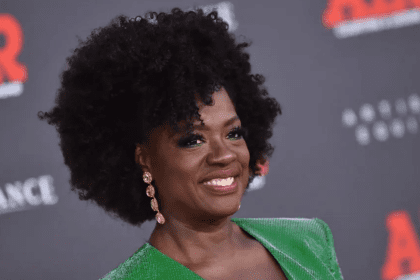In a development that has sent shockwaves through academic circles, Rachel Dawson, a former high-ranking Diversity, Equity, and Inclusion (DEI) officer at the University of Michigan, faces serious allegations of making antisemitic remarks that led to her termination in December 2024. The incident has sparked a heated debate about free speech and professional conduct in academic settings, particularly at a time when universities nationwide grapple with issues of diversity and inclusion.
The allegations surface
The controversy began at a diversity and equity conference in March 2024, where Dawson allegedly made controversial statements about the Jewish community during a conversation with two professors. The reported remarks, including claims about Jewish control of the university, led to her dismissal by the university’s Provost, who cited inconsistency with her professional responsibilities.
According to sources familiar with the situation, the conversation took place during a break between conference sessions, where discussions about campus diversity initiatives were already a focal point. The specific nature of the allegations has raised questions about the boundaries between personal opinions and professional obligations in academic settings.
Legal battle brewing
Through her attorney Amanda Ghannam, Dawson has strongly denied the allegations and suggests potential legal action against the university. The defense argues that her termination violates First Amendment rights guaranteed to public employees, setting the stage for a complex legal battle that could have far-reaching implications for academic freedom.
Ghannam emphasizes that Dawson was placed on administrative leave without proper warning and argues that the university failed to follow established procedures for addressing such concerns. The legal team contends that the conversation was taken out of context and that Dawson’s comments were part of a broader discussion about systemic inequalities in higher education.
Campus climate tensions
The incident occurs against a backdrop of escalating tensions at the University of Michigan, particularly regarding issues of diversity and inclusion. The university’s recent decisions about DEI programs have already created controversy, and this dismissal adds another layer to ongoing campus debates.
The timing of the incident is particularly sensitive, coming shortly after the vandalization of a Jewish regent’s home with pro-Palestinian graffiti. These events have contributed to an increasingly charged atmosphere on campus, where discussions about identity, privilege, and power have become increasingly complex and contentious.
Historical context
Prior to this controversy, Dawson had established herself as a respected figure within the university community. Her six-year tenure as managing director of the academic medical center and involvement in various diversity initiatives had positioned her as a key advocate for underrepresented students.
Throughout her career, Dawson played pivotal roles in several university initiatives, including co-chairing the U-M Juneteenth Planning Committee and serving on the executive team of the Women of Color Task Force. Her sudden dismissal has left many questioning the impact on ongoing diversity programs and initiatives she helped establish.
Broader implications
This case raises significant questions about the boundaries of free speech for university employees, particularly those in diversity-focused roles. It also highlights the challenges institutions face in balancing open dialogue with professional responsibilities.
The incident has sparked discussions about the role of DEI officers in navigating complex conversations about privilege, power, and institutional bias. Many wonder how these professionals can effectively address systemic inequalities while maintaining appropriate professional boundaries.
Community response
The university community has shown divided reactions to the situation. While some support the administration’s decision, others view it as potentially stifling important discussions about privilege and power dynamics in academic institutions.
Student organizations across campus have organized forums and discussions to address the implications of Dawson’s dismissal. These conversations often intersect with broader debates about academic freedom, institutional responsibility, and the future of DEI initiatives in higher education.
Administrative perspective
University officials maintain that the decision to terminate Dawson was based on her failure to uphold the responsibilities of her position, which included supporting all students regardless of their background. The administration emphasizes the importance of maintaining an inclusive environment for all community members.
The Provost’s office has issued several statements clarifying the university’s position, stressing that while they support open dialogue and academic freedom, certain professional standards must be maintained, particularly for those in leadership positions within DEI offices.
Student impact
The controversy has particularly affected student groups on campus, with various organizations expressing concerns about its implications for campus dialogue and inclusion efforts. Multiple student advocacy groups have organized protests and forums to discuss the broader implications of Dawson’s dismissal on free speech and academic discourse.
Jewish student organizations have expressed support for the university’s decision, while other campus groups argue that the incident reflects a broader pattern of suppressing critical discussions about institutional power dynamics. These differing perspectives have led to productive, though sometimes tense, dialogue among student communities.
Moving forward
As both parties prepare for potential legal proceedings, the university continues to navigate the complex aftermath of this decision. The administration has announced plans to review its policies regarding professional conduct for DEI officers and other administrative staff.
The case has also prompted discussions about additional training and support for diversity officers, particularly regarding communication about sensitive topics. Many stakeholders emphasize the need for clear guidelines that protect both free speech and professional integrity.
Policy implications
This situation may influence how universities develop and implement policies regarding professional conduct for DEI officers and other administrators. Many institutions are closely watching the case as they consider their own approaches to managing similar situations.
The incident has also sparked discussions about the need for more comprehensive training programs for diversity officers, focusing on effective communication strategies for addressing sensitive topics while maintaining professional boundaries.
National conversation
The controversy contributes to ongoing national discussions about the role of DEI initiatives in higher education and the boundaries of acceptable discourse when addressing sensitive topics. It raises important questions about how universities can foster open dialogue while ensuring all community members feel respected and supported.
The case has drawn attention from national media and academic organizations, highlighting its significance in the broader context of higher education policy and practice. As universities nationwide grapple with similar challenges, the outcome of this situation could influence approaches to DEI leadership and campus discourse for years to come.
Looking ahead
The resolution of this case could set important precedents for how universities handle similar situations in the future. As institutions of higher learning continue to navigate increasingly complex social and political landscapes, the balance between free speech and professional conduct remains a critical consideration.












